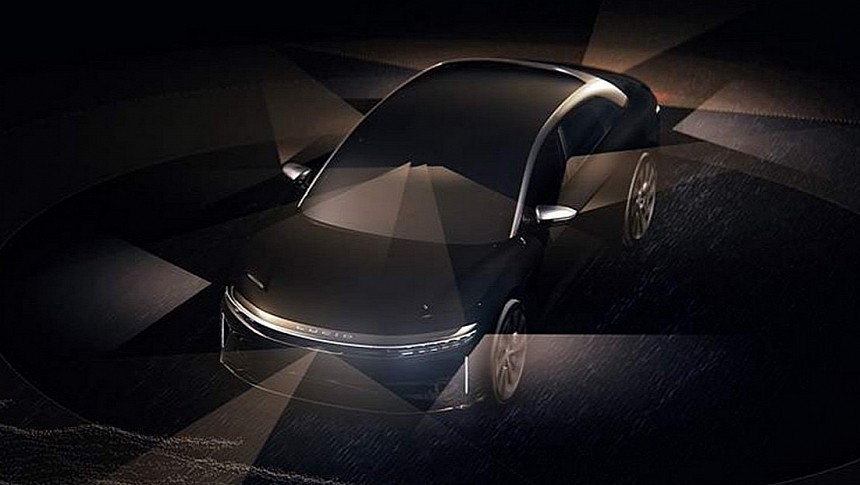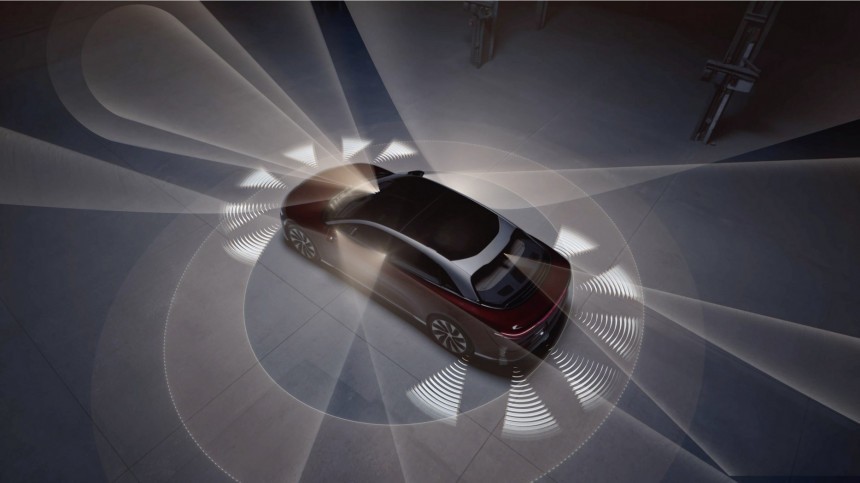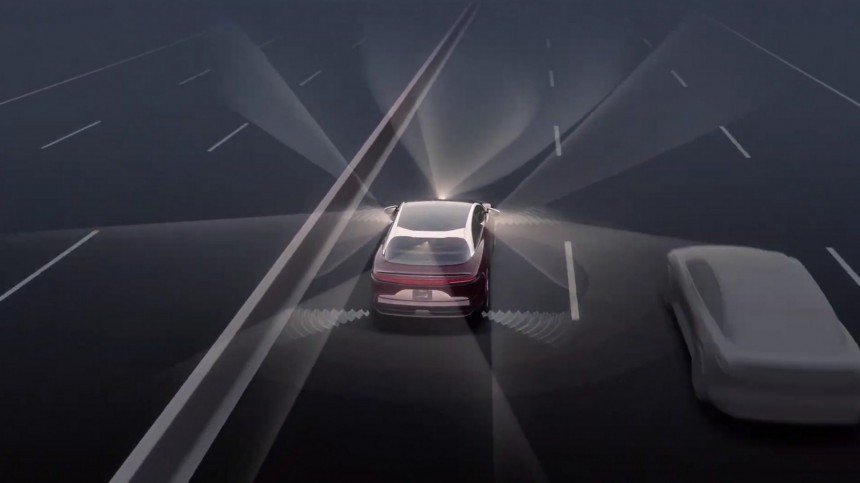When Lucid announced it would sell its cars in Germany, Hansjörg von Gemmingen was among the first customers to order an Air. With fast charging and a massive range, the electric sedan looked like the ideal tool for the man who drove a Tesla Model S for more than one million miles. Ironically, Lucid did not escape getting sued in Germany by Christoph Lindner, aka Tesla Attorney. His client bought a €200,000 Lucid Air Dream Edition Range with DreamDrive Pro and did not get the software.
To be more specific, Lucid still sells the Dream Edition Range of its electric sedan on its German website. The car now costs €218,000 ($233,565 at the current exchange rate). The website clearly states that DreamDrive Pro is standard and that it is "the most comprehensive advanced driver assistance system (ADAS) available in an electric vehicle." Lucid elaborated on that.
The battery electric vehicle (BEV) maker has a dedicated page for DreamDrive Pro where it asks potential customers to "think of it as your invisible co-pilot." The American company also states its capabilities go "from detecting objects you can't see, to optimizing your position on the freeway, to parking automatically." Lucid clarifies that this "remarkable feat of technical engineering and prowess" achieves that with "up to 32 on-board sensors, a sophisticated driver-monitoring system, and lightning-quick on-board Ethernet networking." That all places it "among the most advanced ADAS systems in existence."
For Lindner's customer, that was pretty convincing, which explains his disappointment when he realized his car did not have any of that. According to the attorney, "the vehicle does not even offer lane keep assist," which is standard "on any midsize car these days." The European entrepreneur who bought the car realized that shortly after delivery and contacted Lucid to complain about it. The company recognized the vehicle did not present DreamDrive Pro and said it would not "be able to deliver the DreamDrive Pro feature for the foreseeable future." The customer should get it "in the indefinite future with an over-the-air (OTA) update." For him, it was a deal-breaker.
Lindner's customer decided to withdraw from the purchase contract in mid-August due to a missing feature. The attorney explained that in more detail.
"This case is built on EU consumer protection law, which has been incorporated by the German civil code. Basically, you have two years from the time you receive the vehicle to make a claim for defects or – like here – missing features."
The German law also allows customers to withdraw from the purchase in 14 days without giving a reason for that. Tesla has seen that be extended to one year for failing to supply a phone number for the customers to issue the cancelation notice. According to Lindner, Lucid did everything right in that regard, which led him to believe the whole situation would be solved in a friendly way. He was wrong. Lucid did not reply even after Lindner established a deadline for it, which led the customer to go to court to get his money back.
I tried to contact Lucid on September 13 to learn more about the DreamDrive Pro's absence in this customer's car and also to hear the company's version of this story. I asked the BEV maker if the software absence has to do with more stringent European legislation or if it is just because DreamDrive Pro is not developed. Unfortunately, I have not heard back from it so far, but I will update this story should it decide to clarify everything.
Lindner's office published this statement on its website:
"We believe that customers (especially for vehicles in this price range!) can expect a better deal. It creates understandable annoyance when manufacturers initially promise the moon but are suddenly no longer available when problems arise. Lucid seems to be displaying similar US-style business behavior to Tesla. This leads to dissatisfied customers and harms the transition to e-mobility."
If the court agrees with the customer, Lucid will have to give him almost all his money back and find another buyer for that Air Dream Edition Range. As he drove the car for a while, he will have to pay the company compensation for the mileage in the BEV, which is calculated depending on the lifespan of the vehicle. That may also resemble other Tesla practices.
As my readers will remember, the Model Y creator's lawyers argued in court that the company's vehicles last only 210,000 kilometers (130,488 miles). The goal was to increase the amount of money Tesla could retain from the purchase withdrawals. Will Lucid try to use the same strategy? At least its CEO never promised they would last "300,000 to 500,000 miles" like Musk did. Either Lucid will try to argue its cars have a limited lifespan, or it will accept the probable caducity of internal combustion engine (ICE) vehicles: 250,000 km (155,343 mi). This is definitely a court case that is worth following up.
The battery electric vehicle (BEV) maker has a dedicated page for DreamDrive Pro where it asks potential customers to "think of it as your invisible co-pilot." The American company also states its capabilities go "from detecting objects you can't see, to optimizing your position on the freeway, to parking automatically." Lucid clarifies that this "remarkable feat of technical engineering and prowess" achieves that with "up to 32 on-board sensors, a sophisticated driver-monitoring system, and lightning-quick on-board Ethernet networking." That all places it "among the most advanced ADAS systems in existence."
For Lindner's customer, that was pretty convincing, which explains his disappointment when he realized his car did not have any of that. According to the attorney, "the vehicle does not even offer lane keep assist," which is standard "on any midsize car these days." The European entrepreneur who bought the car realized that shortly after delivery and contacted Lucid to complain about it. The company recognized the vehicle did not present DreamDrive Pro and said it would not "be able to deliver the DreamDrive Pro feature for the foreseeable future." The customer should get it "in the indefinite future with an over-the-air (OTA) update." For him, it was a deal-breaker.
"This case is built on EU consumer protection law, which has been incorporated by the German civil code. Basically, you have two years from the time you receive the vehicle to make a claim for defects or – like here – missing features."
The German law also allows customers to withdraw from the purchase in 14 days without giving a reason for that. Tesla has seen that be extended to one year for failing to supply a phone number for the customers to issue the cancelation notice. According to Lindner, Lucid did everything right in that regard, which led him to believe the whole situation would be solved in a friendly way. He was wrong. Lucid did not reply even after Lindner established a deadline for it, which led the customer to go to court to get his money back.
I tried to contact Lucid on September 13 to learn more about the DreamDrive Pro's absence in this customer's car and also to hear the company's version of this story. I asked the BEV maker if the software absence has to do with more stringent European legislation or if it is just because DreamDrive Pro is not developed. Unfortunately, I have not heard back from it so far, but I will update this story should it decide to clarify everything.
"We believe that customers (especially for vehicles in this price range!) can expect a better deal. It creates understandable annoyance when manufacturers initially promise the moon but are suddenly no longer available when problems arise. Lucid seems to be displaying similar US-style business behavior to Tesla. This leads to dissatisfied customers and harms the transition to e-mobility."
If the court agrees with the customer, Lucid will have to give him almost all his money back and find another buyer for that Air Dream Edition Range. As he drove the car for a while, he will have to pay the company compensation for the mileage in the BEV, which is calculated depending on the lifespan of the vehicle. That may also resemble other Tesla practices.
As my readers will remember, the Model Y creator's lawyers argued in court that the company's vehicles last only 210,000 kilometers (130,488 miles). The goal was to increase the amount of money Tesla could retain from the purchase withdrawals. Will Lucid try to use the same strategy? At least its CEO never promised they would last "300,000 to 500,000 miles" like Musk did. Either Lucid will try to argue its cars have a limited lifespan, or it will accept the probable caducity of internal combustion engine (ICE) vehicles: 250,000 km (155,343 mi). This is definitely a court case that is worth following up.









